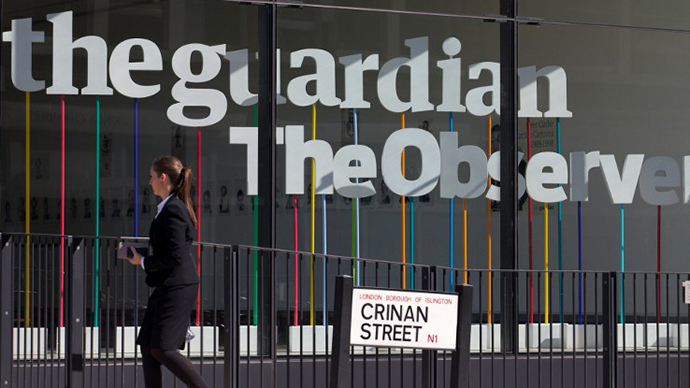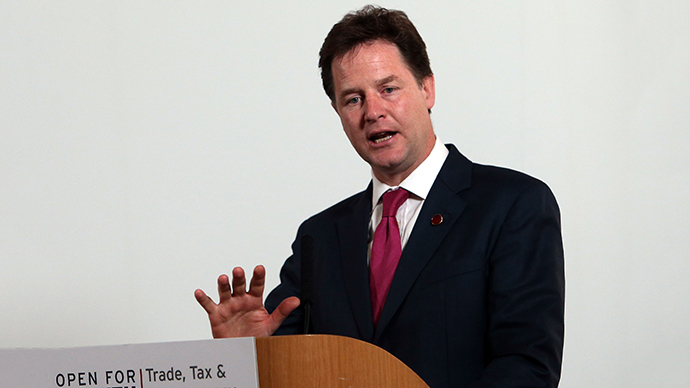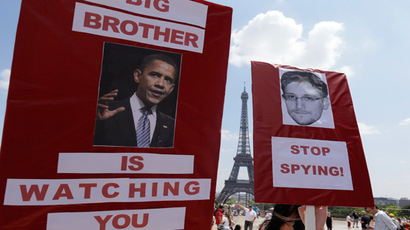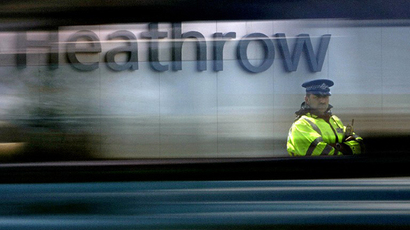Confirmed: Deputy PM initiated Guardian request to destroy NSA files

The UK Deputy Prime Minister has confirmed in a statement he ordered his top civil servant to make sure the Guardian destroyed classified data on US and British surveillance programs. This comes amid implications that Cameron was behind the decision.
The deputy Prime Minster, Nick Clegg, who is leader of the more liberally leaning Liberal Democrat party, has told the British media that he backed Cameron’s decision, a spokesman for the Deputy prime Minster said in a statement.
“On the specific issues of records held by the Guardian, the Deputy Prime Minister thought it was reasonable for the Cabinet Secretary to request that the Guardian destroyed data that would represent a serious threat to national security if it was to fall into the wrong hands,” the spokesman said.
Two months ago, Cabinet Secretary Jeremy Heywood, Cameron’s most
senior policy advisor, contacted the Guardian and told them to
hand back or destroy the material leaked to them by former NSA
contractor Edward Snowden.
It also emerged that Cameron's National Security Adviser
Kim Darroch was involved, it was reported by Reuters.
Clegg said that he was “keen to protect” the Guardian’s freedom while at the same time protecting national security. The Deputy PM agreed that the destruction of the material would not stop the Guardian’s ability to publish further revelations.
“It was agreed to on the understanding that the purpose of the
destruction of the material would not impinge on the Guardian’s
ability to publish articles about the issue but would help as a
precautionary measure to protect lives and security,” the
spokesmen added.

Two sources with direct knowledge of the matter told Reuters that David Cameron himself ordered Heywood to stop the revelations flowing from the Guardian.
“The Prime Minster asked the Cabinet Secretary to deal with this matter, that’s true”, one source told Reuters.
The Editor of the Guardian, Alan Rusbringer, said on Tuesday that he had been approached by “a very senior official claiming to represent the views of the Prime Minster” after his paper published a series of Snowden’s exposes.
David Cameron has not yet commented and is on holiday with his family in South West England, but the shadow home secretary Yvette Cooper already urged the PM to come clean on the issue, adding his role in the scandal should be investigated by the parliament's intelligence watchdog.
The Government and their supporters say that the information leaked by Snowden could threaten national security, but rights groups have accused the government of an assault on press freedom.
They are particularly concerned about the detention of Guardian reporter, Glen Greenwald’s partner, David Miranda and his detention at London’s Heathrow airport on Monday under Schedule 7 of the UK’s anti-terrorism law on suspicion of carrying “stolen documents” and the move by the UK government to force the Guardian to destroy Snowden’s material.
“We don’t know what was on the [hard drives] or what the
material was that the government was pursuing. Clearly the
government does have a responsibility to protect national
security. However, I think this may be another area where an
inquiry by the intelligence and security committee may be the
right way forward,” Yvette Cooper told a BBC radio program.
The British handing of the Guardian's coverage of the Snowden
leaks has even left the US talking about the importance of media
freedom.














